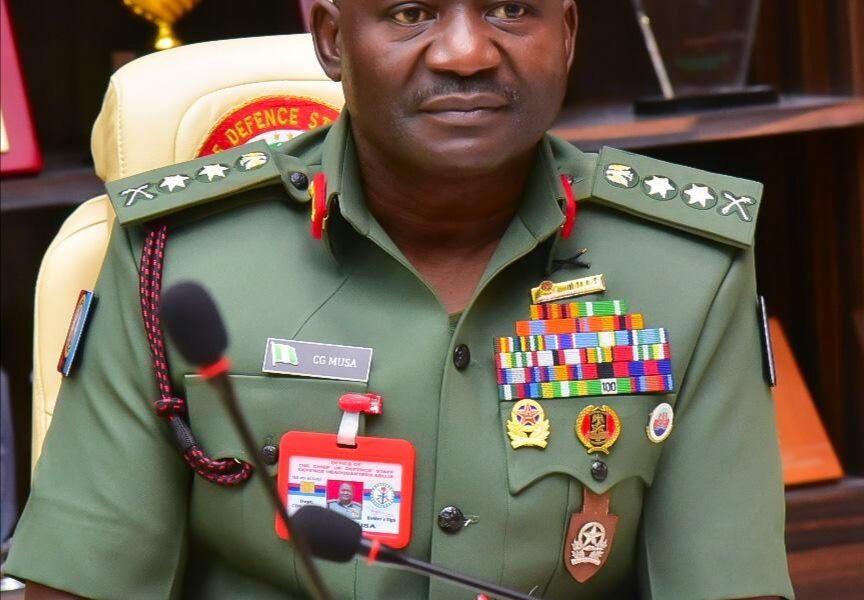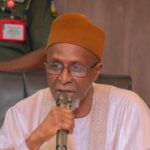- Names borders problem too
From Ada Okafor, Kaduna
The Chief of Defence Staff (CDS), General Christopher Musa, has expressed concern that efforts being made by the Armed Forces of Nigeria (AFN) to end insecurity, especially in the Northern part of the country, have been frustrated by the judicial system, poor border management, amongst other socio-economic challenges.
General Musa, who stressed that the security situation in Northern Nigeria is complex and characterised by multiple challenges mitigating against efforts of the nation’s military’s readiness and effectiveness to bring insecurity to an endurable end.
Musa spoke over the weekend in Zaria as the Guest Lecturer at a one-day dialogue organised by the Institute for Development Research and Training (IDR&T), Ahmadu Bello University (ABU), Zaria on the topic: “Assessing the Present Security Situation in Northern Nigeria,” ephasised that traditional use of force had been complemented with the non-traditional approaches such as civil-military relations and civil-military cooperation.
According to the CDS: “Despite the successes achieved so far, several challenges still affect the Armed Forces’ efforts towards curbing the various security threats in the Northern part of Nigeria.
“These challenges include complexities of border management as well as the erroneous perception of security as a task only for uniformed personnel and a lack of patriotism.
“Others are low human capacity index and perception of lack of justice; sow judicial process and a perception of lack of justice, fairness and equity amongst citizens within the country is also a major challenge.
“Although essentially contested, it is a multifaceted issue which has grown over time with delays in cases leading to frustration, disappointment and challenges in addressing systematic issues.
“For instance, the armed forces have thousands of apprehended terrorists and bandits whose cases are still not yet concluded in the courts.
“Other issues such as seeming favoritism and inaccessibility to justice, particularly for the poor are also perceived to have affected the dispensation of justice in the society.
“These issues breed apprehension and dissatisfaction which in turn could cause unnecessary tensions.
“Therefore, it is essential to restore efficient processes to resolve disputes that may arise from the perception of injustice especially across the teeming youth population of the north.
“The perceptions of lack of justice, fairness and equity in the allocation of national resources have also been advanced as the reasons for some threats to our collective security in several instances.
“Equally, complaints of oppression and unjust treatment by individuals and groups will need to be revisited so as to give them closure.
“Furthermore, specific reforms to allow for special courts to address only cases on terrorism, kidnapping, treason and other similar cases to aid speedy trial could be considered and set up.
“Such courts could also allow the military to prosecute those cases it is involved in only in such special courts. To this end, a sustained effort from government, civil society and citizens will be required.
“Nigeria has 364 approved international border points and 1,497 other illegal migration points into the Country. Further to this, Nigeria is a signatory to the ECOWAS Protocol on free movement of persons, goods and services within the West African sub-region”.



